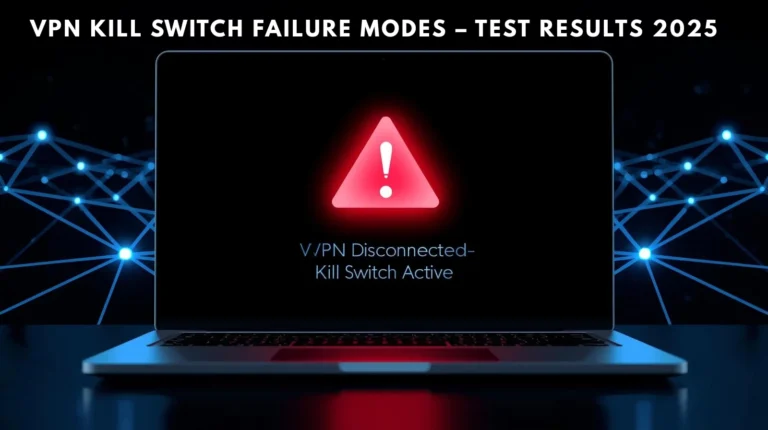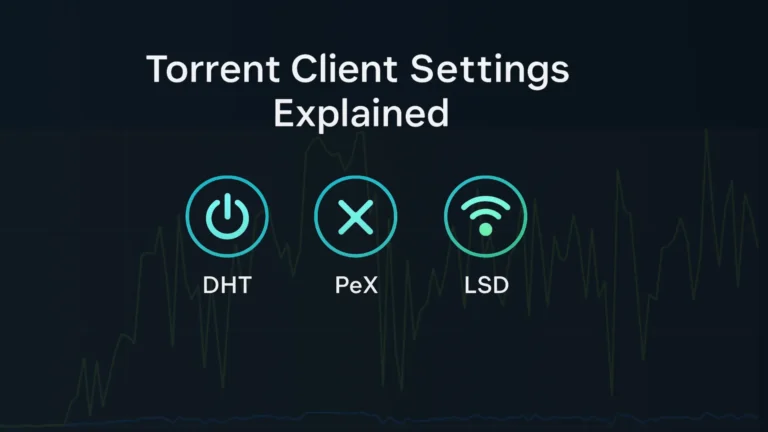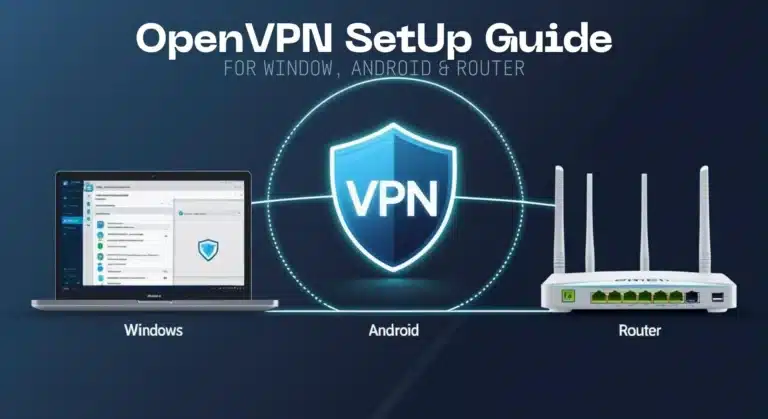VPNs, proxies, and Tor hide your IP address, but each works differently. A VPN encrypts all your internet traffic and routes it through a secure server, making it the most secure and versatile choice. A proxy sends your traffic through an intermediary server without encryption, providing only basic privacy for simple tasks. Tor (The Onion Router) bounces your connection through multiple nodes with layers of encryption for maximum anonymity – but it’s very slow. In 2025, most users should stick with a VPN for privacy and streaming, use proxies for quick site access, and reserve Tor for the rare situations when maximum anonymity is needed. our today’s guide VPN vs Proxy vs Tor will guide you the difference between VPN & Proxy, Tor vs VPN and lots more.
What is a VPN (Virtual Private Network)?
A VPN is a service that creates a secure, encrypted tunnel for all your internet traffic. In simple terms, a VPN takes everything you do online and routes it through a safe server in another location. This hides your real IP address (your device’s unique online identifier) and makes it look like you’re browsing from the VPN server’s location. At the same time, it scrambles (encrypts) your data so that no one – not your internet service provider (ISP), not hackers on public Wi-Fi – can see or steal your information.
Using a VPN is straightforward. You install a VPN app on your device and log in to your account. Then you select a server location and hit connect. Once connected, all your internet activity is routed through the VPN. For example, if you connect to a VPN server in the UK, websites will think you’re visiting from the UK, which is great for accessing region-locked content.
Benefits of using a VPN

The biggest advantage is privacy and security. A VPN encrypts your connection, so even if someone intercepts your data, all they’d see is gibberish. This is essential when you’re on public Wi-Fi (like at a cafe or airport), because it prevents thieves from snooping on things like your passwords or banking info. A VPN also hides your browsing from your ISP and can stop advertisers or websites from tracking you via your IP.
Beyond security, VPNs let you bypass geographic restrictions. Many people use VPNs to stream shows or sporting events that are only available in certain countries. Unlike proxies (which we’ll discuss next), a good VPN works with services like Netflix and Hulu to unblock more content reliably. VPNs are also the safest choice for activities like torrenting or P2P file-sharing, since they hide your IP from other peers and mask your activity from your ISP (for more details, see our guide to the best VPN for torrenting).
VPN services typically come from reputable providers that offer servers around the world. Most quality VPNs charge a subscription (a few dollars per month), though there are some free VPNs out there. Be cautious with free VPNs – they often have limitations like data caps, slower speeds, or even privacy issues (some free VPNs log or sell your data). Generally, you get what you pay for with VPNs. For strong security and performance, it’s worth investing in a paid VPN that has a no-logs policy. (Check out our recommendations for the best VPN services 2025 to find reliable options, and read our breakdown of free vs. paid VPN to understand the trade-offs.)
In summary, a VPN is the go-to tool for everyday online privacy, security, and freedom. It keeps your connection private and lets you browse without borders. The only real downsides are a potential slight speed reduction and the need to trust your VPN provider – which is why choosing a trustworthy service is important. For most users in 2025, a VPN strikes the best balance between keeping you safe and letting you use the internet normally (streaming, browsing, downloading) without hassle.
What is a Proxy Server?

A proxy server acts as an intermediary between you and the internet. When you use a proxy, your web traffic is routed through that proxy server before reaching the website or service you’re trying to access. In effect, the proxy hides your IP address from the website by substituting its own IP. For example, if you’re in school and use a web proxy to visit a blocked site, the site sees the proxy server’s IP and location instead of yours, tricking it into thinking the request is coming from the proxy.
However, unlike a VPN, a proxy does not encrypt your connection. It’s a simple relay. Anyone watching the network (your ISP, a government agency, or someone on your Wi-Fi) could still view your online activity or intercept the data you send through a proxy. All the proxy is doing is changing the apparent source of your traffic, not securing it. This means that while your IP might be hidden from the destination website, the traffic is not hidden from others on the route.
Proxies are typically configured on an app-by-app basis. You might set a proxy in your web browser settings or use a specific proxy website. A common example is a public “web proxy” site where you enter a URL and it shows you that page through their server. This can help get around simple filters – for instance, accessing social media on a network that blocks it.
There are also SOCKS proxies which can handle different types of traffic (not just web pages), and these are sometimes used in applications like torrent clients or gaming. But regardless of type, using a proxy means only that particular app’s traffic is affected. If you set a proxy for your browser, other apps on your device (like email or games) will still connect directly, without the proxy.
Pros & cons of proxies
The big advantage of a proxy is ease of use for quick tasks. Many proxies are free and require no software install (e.g., just go to a proxy website). They can be faster than VPNs in theory, because there’s no encryption overhead. If you just need to quickly change your IP or bypass a simple content block, a proxy can do the job. For example, a proxy might let you watch a YouTube video that’s blocked in your country or read an article that’s behind a region restriction.
That said, proxies come with serious downsides. Because they don’t encrypt data, you get no security. Any sensitive information (passwords, messages, credit card numbers) sent via a proxy could be seen by others. You also have to trust the proxy provider – a lot of free proxies are run by unknown parties, and they could be logging your data or even altering content. It’s not unheard of for malicious proxy operators to inject ads or malware.
Moreover, many websites and streaming services now detect and block known proxy servers. If you try to use a proxy with Netflix, for instance, you’ll likely get an error. And since proxies only work per application, they won’t cover your whole device’s traffic like a VPN does.
In summary, a proxy is useful only for very casual, non-sensitive browsing or bypassing minor restrictions. It’s like a temporary bandage rather than a robust solution. If you just want to quickly peek at something that’s blocked and security isn’t a concern, a proxy is fine. But for anything beyond that – especially anything involving personal data, accounts, or long-term use – you should opt for a VPN. Proxies solve the “what’s my IP?” problem but do little for true privacy.
What is Tor (The Onion Router)?

Tor is a special network and software for anonymous communication. The name stands for “The Onion Router” due to its layered approach to encryption. When you use Tor – usually by running the Tor Browser – your internet traffic is routed through multiple volunteer-run servers (nodes) around the world before reaching its destination. Each node peels off one layer of encryption and then passes your data to the next node, like passing a secret note through several messengers who each only know the next person in line. By the time your traffic exits the final node and reaches the website you’re visiting, your original IP address has been hidden through several layers of indirection. This makes it extremely difficult for anyone to trace the connection back to you.
Tor’s biggest strength is anonymity. It’s the go-to tool for people who need to be anonymous or circumvent heavy surveillance and censorship. Journalists, activists, and whistleblowers use Tor to communicate without revealing their identities or locations. When you browse with the Tor Browser, your connection is anonymized – neither the websites you visit nor prying eyes (like your ISP or government censors) can easily tell who or where you are. Tor also allows access to the dark web, which is a collection of hidden websites (with .onion addresses) that are not accessible through regular browsers. All of this is available to anyone; Tor is free to download and use.
However, this high level of anonymity comes at a cost. Speed is the major drawback. Tor is noticeably slow. Because your data is bouncing through at least three different nodes (and often many more), everything takes longer. Browsing on Tor can feel sluggish – even loading simple websites might take a while, and high-bandwidth activities like streaming video or large downloads are generally not feasible. Additionally, many websites see traffic coming from Tor exit nodes and assume it might be malicious (since Tor is sometimes used for hacking or spam), so they might block Tor users or make you complete endless captchas.
Another limitation is that Tor doesn’t encrypt the traffic outside its network. The Tor network itself encrypts your data between nodes, but when your traffic leaves the Tor exit node to reach the final website, it’s no longer encrypted by Tor. So, if the site you’re visiting isn’t using HTTPS, the person running that Tor exit node could potentially view or tamper with your data (just as a proxy could). For this reason, security experts advise using Tor in combination with HTTPS everywhere, and being cautious about the information you send. Unlike a VPN, which encrypts your data all the way to the VPN server and often beyond, Tor’s encryption is multi-layered but doesn’t cover the last step from the exit node to the website server.
It’s also important to note that while Tor provides excellent anonymity, it’s not 100% foolproof. Researchers and governments have found ways to attack or monitor Tor users (for example, through traffic correlation attacks if they can observe both ends of your Tor connection). Simply using Tor can also draw attention; in some places, ISPs or authorities might take an interest if they detect Tor usage. Therefore, Tor should be used with caution and awareness of its limits. It’s a fantastic tool for what it does, but it should be combined with safe browsing habits. (For instance, avoid downloading files through Tor and opening them while online, as that can reveal your non-Tor IP, and don’t install extra browser plugins that aren’t built-in to Tor Browser.)
Is Tor a VPN?
No – Tor is not a VPN. Both Tor and VPNs hide your IP address and use encryption, but they work very differently. A VPN routes all your traffic through one secure server run by a provider (which you trust to handle your data), whereas Tor routes your traffic through a chain of many random servers run by volunteers (with no single point of trust). Tor offers stronger anonymity than a VPN because not even the Tor network knows who you are and what you’re accessing. However, Tor is much slower than a VPN, and it doesn’t encrypt the final leg of the connection to the destination website. In contrast, a VPN is faster and encrypts your entire connection to the VPN server, but the VPN company can see your traffic (so you must choose a reputable, no-logs VPN). In summary, Tor and VPN are distinct tools – Tor is better for maximum anonymity, and VPNs are better for general security, speed, and everyday privacy.
VPN vs Proxy vs Tor: Key Differences
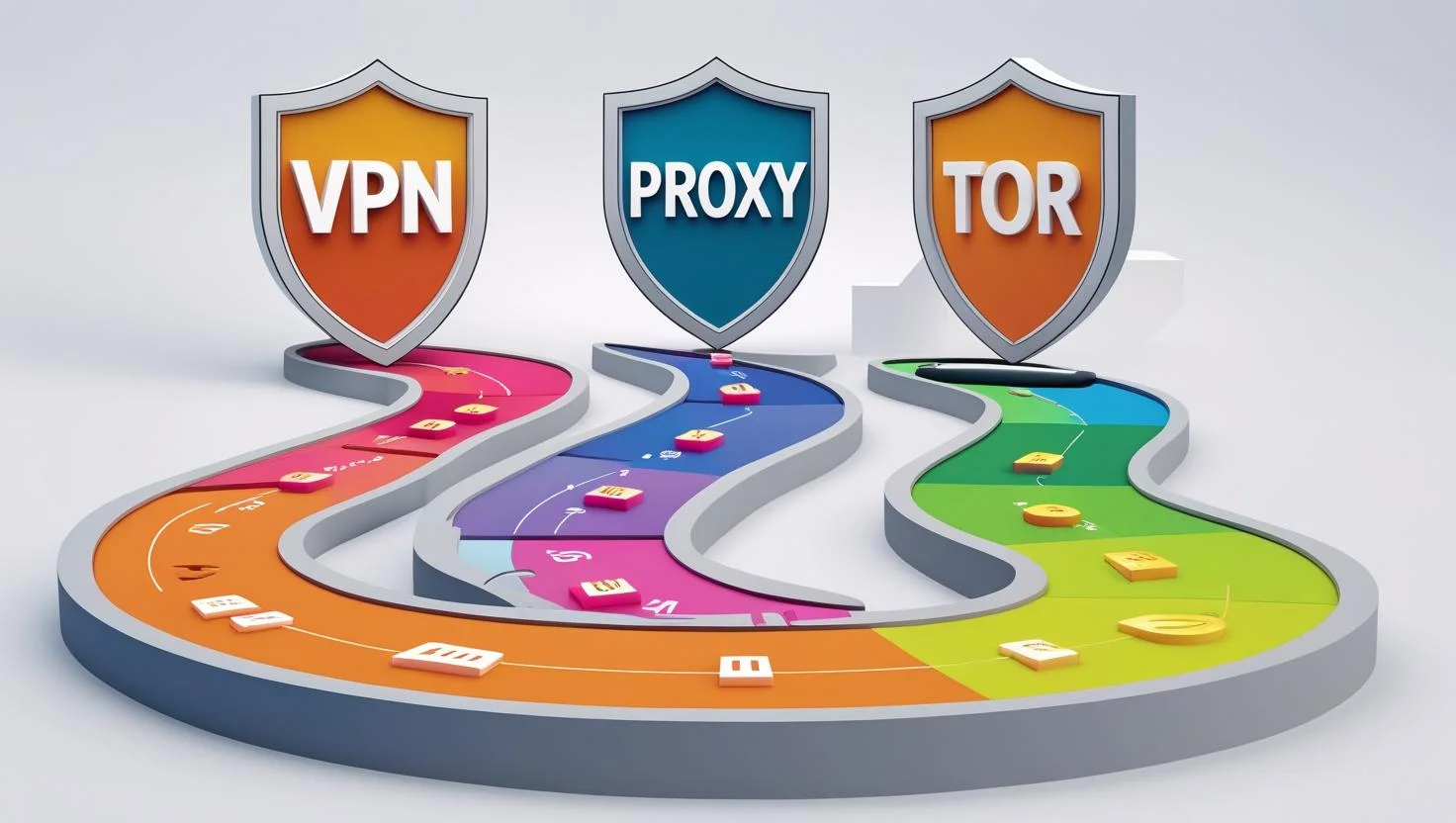
To summarize the differences, here’s a quick comparison of VPNs, proxies, and Tor across key factors like speed, security, anonymity, and usage:
| Factor | Proxy | VPN | Tor |
|---|---|---|---|
| Speed | Fast (no encryption overhead, but free proxies can be slow if overloaded). | Moderate (minor speed loss due to encryption; premium VPNs are usually fast). | Slow (multiple relays cause significant lag). |
| Security | Low – No encryption; not safe for confidential data (anyone can snoop on your connection). | High – Encrypted tunnel; very safe for sensitive browsing (protects against hackers & Wi-Fi threats). | Medium – Traffic is encrypted within Tor network, but the final exit node sees unencrypted data (always use HTTPS for security). |
| Anonymity | Low – Hides your IP from the target website, but your ISP and the proxy server itself can still see your activity. | Medium – Hides your IP and keeps your browsing private from ISP; however, you must trust the VPN provider (choose a no-logs VPN for true privacy). | Highest – Multi-hop routing provides strong anonymity; no single node knows your full identity and destination. |
| Device Scope | Limited – Usually configured per application (e.g., your browser only). Other traffic on your device won’t use the proxy. | Comprehensive – Covers your entire device (all apps) when active. VPN apps are available for computers, smartphones, and even routers. | Specific – Generally limited to the Tor Browser or apps specifically set up to use Tor. Does not cover all device traffic by default. |
| Best Use Cases | Basic web access: Bypassing simple website blocks or viewing region-restricted content when security isn’t crucial. | Everyday security: General privacy, securing public Wi-Fi, unblocking streaming services, safe torrenting – a VPN is the all-purpose choice for most users. | Maximum anonymity: Sensitive situations like journalism under surveillance, bypassing heavy censorship, or accessing the dark web. |
When Should You Use a VPN, Proxy, or Tor? (Real-World Examples)
Choosing between a VPN, proxy, or Tor often comes down to what you’re trying to do. Here are some common scenarios and the recommended tool for each:
- Streaming geo-blocked content (Netflix, Hulu, etc.): Use a VPN. Streaming services are very good at detecting and blocking proxies (and Tor), but a quality VPN can usually get around those restrictions. A VPN will let you watch Netflix shows from other countries or access YouTube videos not available in your region, all while keeping a fast enough speed for smooth viewing. Proxies often won’t work for Netflix, and Tor is far too slow for video streaming.
- Bypassing school or work filters: If you just need quick access to a blocked website (like checking Facebook or Wikipedia on a school network), a web proxy might do the trick since it’s simple and doesn’t require installation. However, proxies won’t hide what you’re doing from the school’s network admin and might themselves be blocked. For more reliable and private access, a VPN is better – it will encrypt your traffic so the network can’t see what sites you visit. Keep in mind some schools or offices also try to block VPN connections, but the more advanced VPNs have ways to disguise their traffic.
- Using public Wi-Fi safely (cafes, airports, etc.): Always use a VPN. Public hotspots are notorious for snoopers and hackers. A proxy would hide your IP from websites but do nothing to encrypt your data on the Wi-Fi network, leaving you exposed. Tor encrypts your data in the network but is impractical for regular browsing and may not work with many logins or apps. A VPN is the ideal solution for Wi-Fi security, ensuring no one else on that network can spy on your connection.
- Downloading torrents or P2P sharing: Use a VPN. Neither proxies nor Tor are good choices here. Some tech-savvy users might use a SOCKS5 proxy with their torrent client, but that still doesn’t encrypt your data – it only hides your IP from other peers. Tor, on the other hand, is not designed for torrenting and using it for that can both slow down the network for others and potentially expose you (torrent applications often ignore proxy settings or leak info). A VPN will hide your torrent activity from your ISP and protect your privacy while maintaining much better speeds (see our list of the best VPNs for torrenting for recommended services).
- Achieving maximum anonymity (journalism, whistleblowing, sensitive research): Use Tor. When your life or liberty might depend on remaining anonymous online, Tor is the strongest tool. It’s free and routes your connection through multiple encrypted hops, making it extremely hard to trace. Journalists communicating with sources or citizens living under oppressive regimes should consider Tor (and visit sites via their .onion addresses when possible for end-to-end encryption). In such cases, the slow speed is a trade-off that’s worth it for the added anonymity. For even more security, some people use a VPN in combination with Tor, but that can be complex and is usually overkill for average needs.
Conclusion
When it comes to the VPN vs proxy vs Tor debate, the bottom line is that a VPN is the best choice for most users in 2025. A good VPN combines strong security, privacy, and decent speed without requiring technical know-how. It encrypts your data and just works in the background while you browse and stream as usual. In contrast, proxies are too limited and insecure for anything serious, and Tor, while highly anonymous, is too slow and specialized for everyday internet use.
If you value your online privacy and want a hassle-free experience, investing in a reputable VPN service is worth it. Proxies still have a place for quick, low-stakes tasks, and Tor remains invaluable for those who truly need maximum anonymity. But for the vast majority of people who just want to stay safe online, avoid region blocks, and keep snoopers out of their business, a VPN is the clear winner.
Why We Recommend NordVPN (And How to Save Up to 68%)
If you’re looking for a fast, secure, and trusted choice, NordVPN stands out. It’s one of the most reliable VPNs for everyday users, offering strong encryption, lightning-fast speeds, global server coverage, and apps for every device.
What makes NordVPN even more appealing in 2025 is its flexible pricing. Whether you’re testing the waters with a monthly plan or locking in long-term savings of up to 68% with a 2-year subscription, there’s a plan to match your privacy needs and budget. The 1-year plan strikes a great balance between commitment and value, offering over 50% off compared to monthly pricing — all with the same premium features and 24/7 support.
Here’s a visual breakdown of current NordVPN discounts to help you decide:
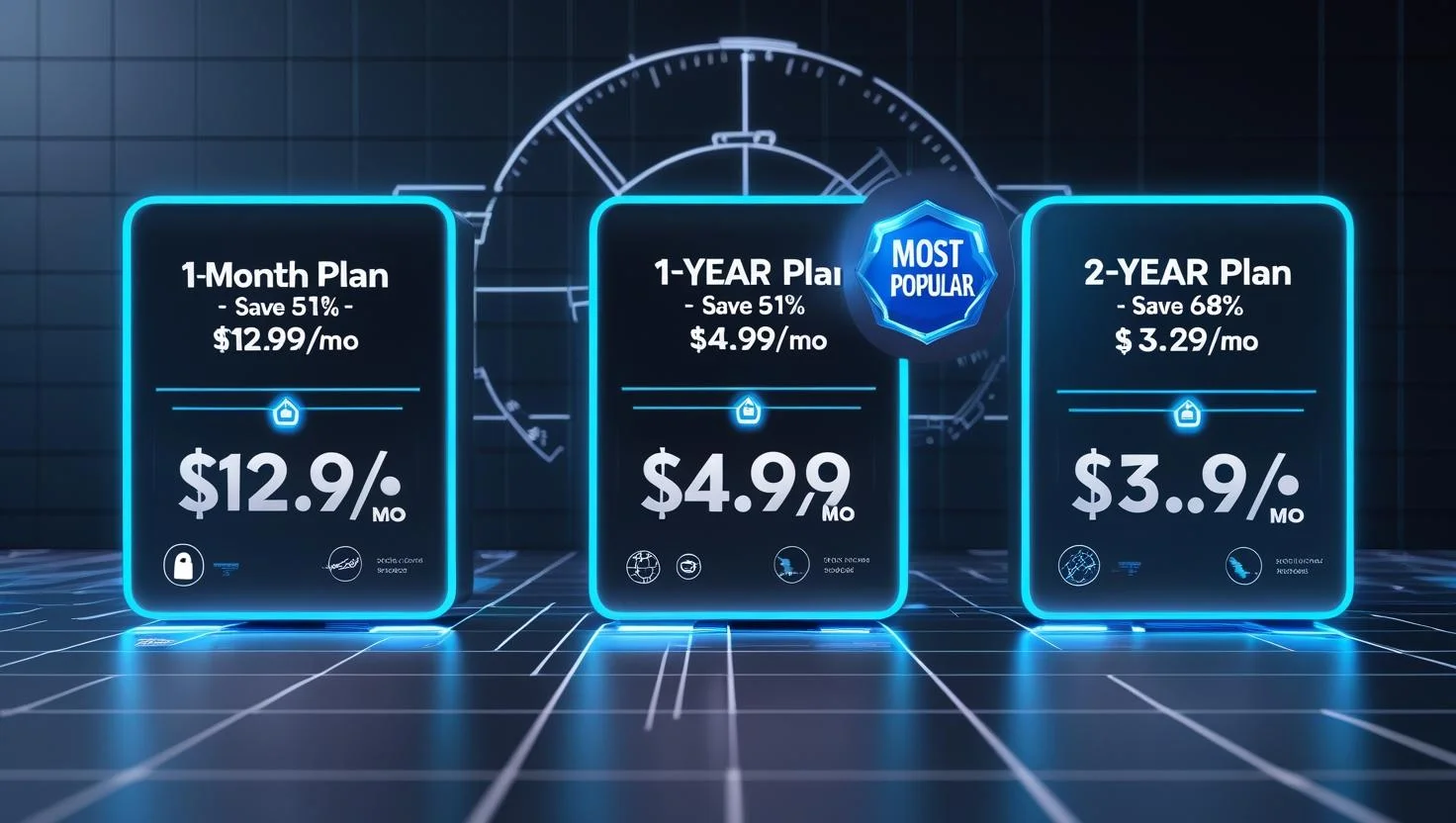
No matter if you’re streaming geo-blocked content, torrenting securely, or just staying private on public Wi-Fi, NordVPN delivers peace of mind with every connection. Plus, with a 30-day money-back guarantee, you can try it completely risk-free.
FAQ
What is safer, a proxy or a VPN?
A VPN is generally much safer than a proxy. Both can hide your IP address, but a VPN also encrypts all your data, whereas a proxy does not. With a VPN, your internet traffic is protected inside an encrypted tunnel, so outsiders can’t read it. With a proxy, anyone monitoring the network (or even the proxy owner) could intercept and see your activity. If privacy and security are a concern, a VPN is the better choice by far.
Which is faster, a VPN or a proxy?
Proxies usually have less overhead, so they can be faster in theory – but in practice, the answer depends. A good VPN with fast servers can often be nearly as fast as browsing without a VPN, and you likely won’t notice much difference for everyday use. Free proxies, on the other hand, might be overloaded and slow. Generally, if pure speed with no encryption is your goal, a proxy might give you a slight edge, but a quality VPN provides excellent speeds while still securing your connection. (Tor is by far the slowest option of the three, due to its multi-hop design.)
Can I use a VPN and Tor together?
Yes, it’s possible to use Tor and a VPN at the same time, but it’s not necessary for most people. Some privacy enthusiasts route their Tor traffic through a VPN or vice versa for an extra layer of protection. This can prevent your ISP from knowing you’re using Tor and can add security, but it will make your connection even slower than Tor alone. Configuring Tor-over-VPN or VPN-over-Tor can be tricky, and if not done right it might not add much benefit. Unless you have a very specific need for that extra layer, using one tool at a time (a good VPN for general privacy, or Tor for true anonymity) is usually sufficient.
Are free VPNs or proxies safe to use?
You should be cautious with free VPNs and proxies. Many free proxy servers are run by unknown parties and could log your data or inject ads/malware. Free VPNs, while slightly better, often come with limitations – they might have data caps, slow speeds, or questionable privacy practices (some free VPN apps have been caught collecting user data). That’s not to say all free services are evil, but remember that running a VPN/proxy service costs money. If you’re not paying for it, the service might be earning money in other ways (like selling your data). It’s generally recommended to use a reputable paid VPN if you can. If you do need a free option, stick to well-known free VPNs with good reputations (and understand the trade-offs). For more info, see our article on free vs paid VPN.
Is Tor illegal to use?
Using Tor is legal in most countries, including the US and European nations. It’s simply a privacy tool. However, because Tor is sometimes associated with illegal activities on the dark web, its use might draw attention from authorities or trigger extra scrutiny. A few countries with heavy internet censorship (like China or Iran) try to block Tor entirely. The act of using a VPN or proxy is also legal in most places (again, with a few exceptions where governments restrict them). Always make sure you’re following your local laws, but generally speaking, using these privacy tools is perfectly lawful for ordinary activities.

